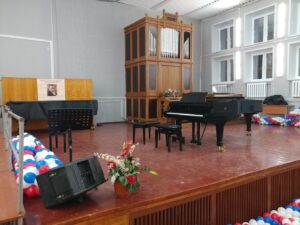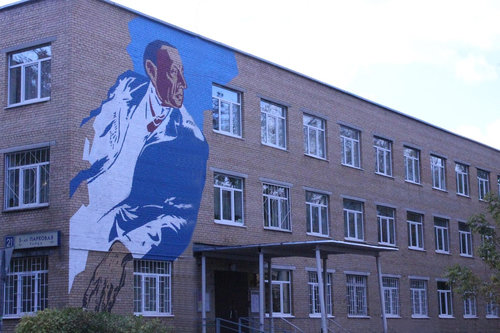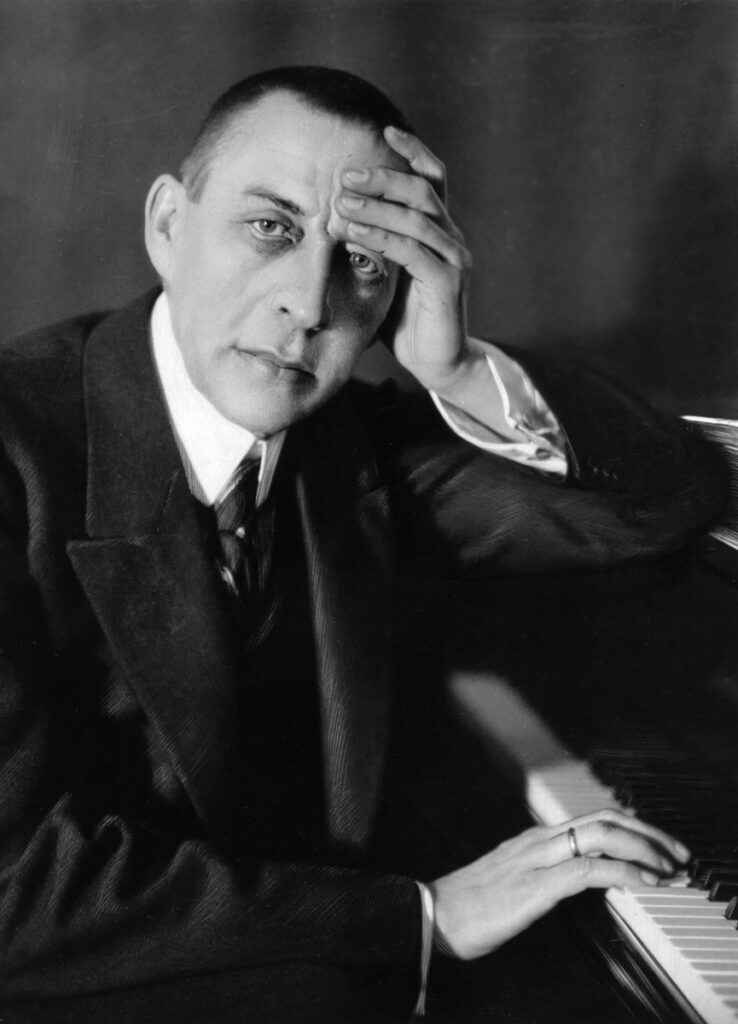Music School
named after Rachmaninoff

In November 1951, by the orders of the Council of Ministers of the RSFSR and the Executive Committee of the Moscow City Council of Workers’ Deputies, the Children’s Music School №27 was opened, which was provided with a small wooden structure for classes with students with a contingent of less than 50 people. In 1975, a 3-storey, detached brick building was built in which the school is located at the present time. Excellent teachers were at the origins of the creation of the School who devoted many years of their creative work to it and played a huge role in the formation and development of its creative traditions. In the 70s and early 80s of the XX century, a new pleiades of talented teachers came to the Music School, who passed on their accumulated experience to the next generations of teachers, contributing to the strengthening and multiplication of established traditions, which allowed the School to take its rightful place among the leading music schools in Moscow. For a great creative contribution to the cultural construction of the Russian Federation in 1987 the Children’s music school, by the decision of the Board of the Ministry of Culture of the RSFSR and the Presidium of the Central Committee of Trade Unions, was listed in the «Book of Labour Glory of the Russian Federation». Throughout its activity, the School has provided musical education to more than 3000 children, many of whom (over 350 people) have become professional musicians. Among the graduates of the School are the museum staff, talented administrators and musical performers. Many graduates of the school are the teachers of music schools, specialized secondary and higher educational institutions in Moscow; artists of orchestras of Russia and foreign countries; members of numerous musical groups.
Sergei Vasilyevich Rachmaninoff was a Russian composer, conductor, pianist, representative of the directions of symbolism and neo-Romanticism in academic music. He combined the principles of the St. Petersburg and Moscow schools of composition in his work (as well as a mixture of the traditions of Western European and Middle Eastern music) and created his own original style. His work is closely connected with Russian culture in general and folk song in particular. He created three operas (including «Aleko», «The Miserly Knight», «Francesca da Rimini»), three symphonies, works for orchestra, four piano concertos, rhapsodies on a theme of Paganini for piano and orchestra, choral works, numerous piano works, songs and romances.
Address: Moscow, 5th Parkovaya str., 21A

